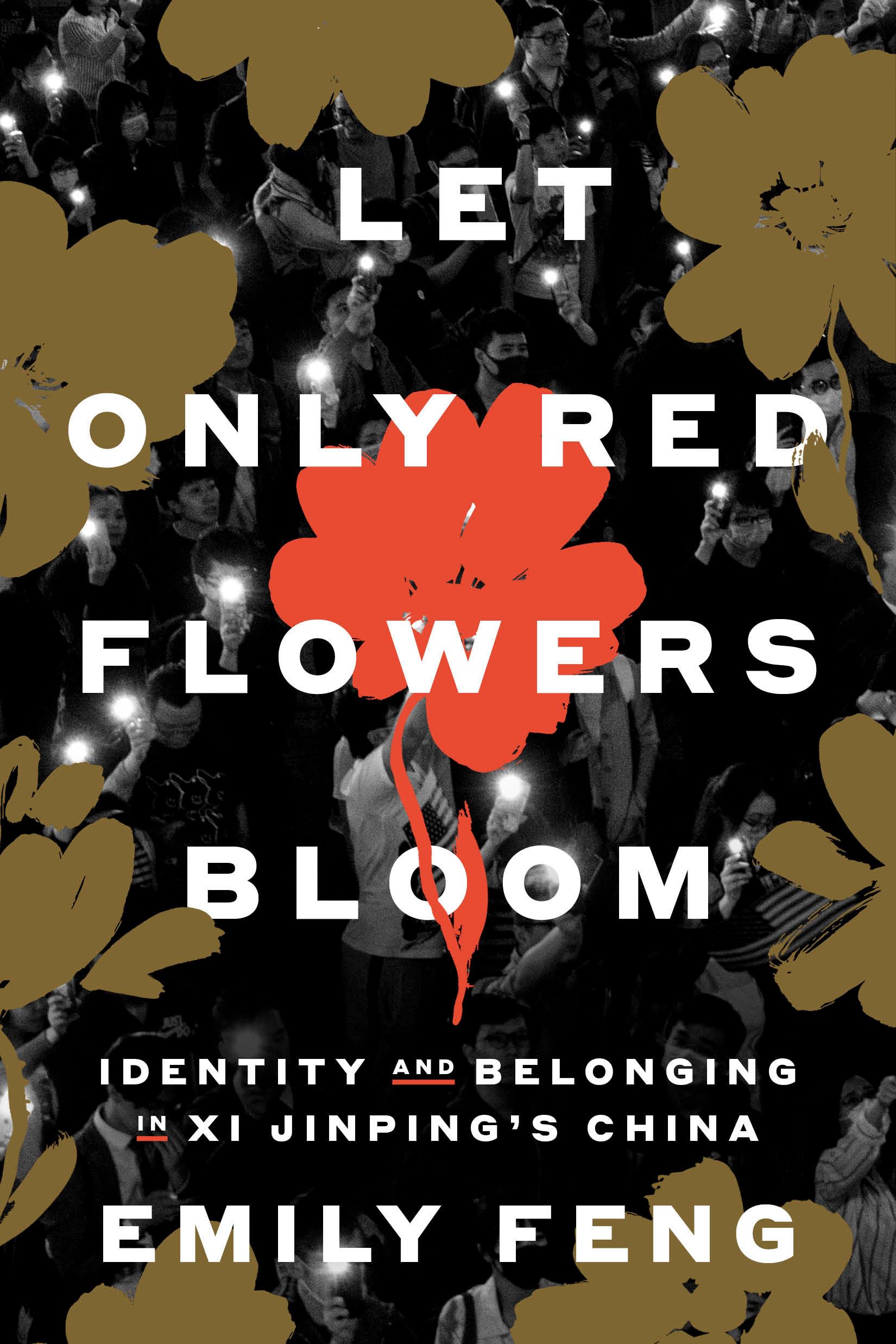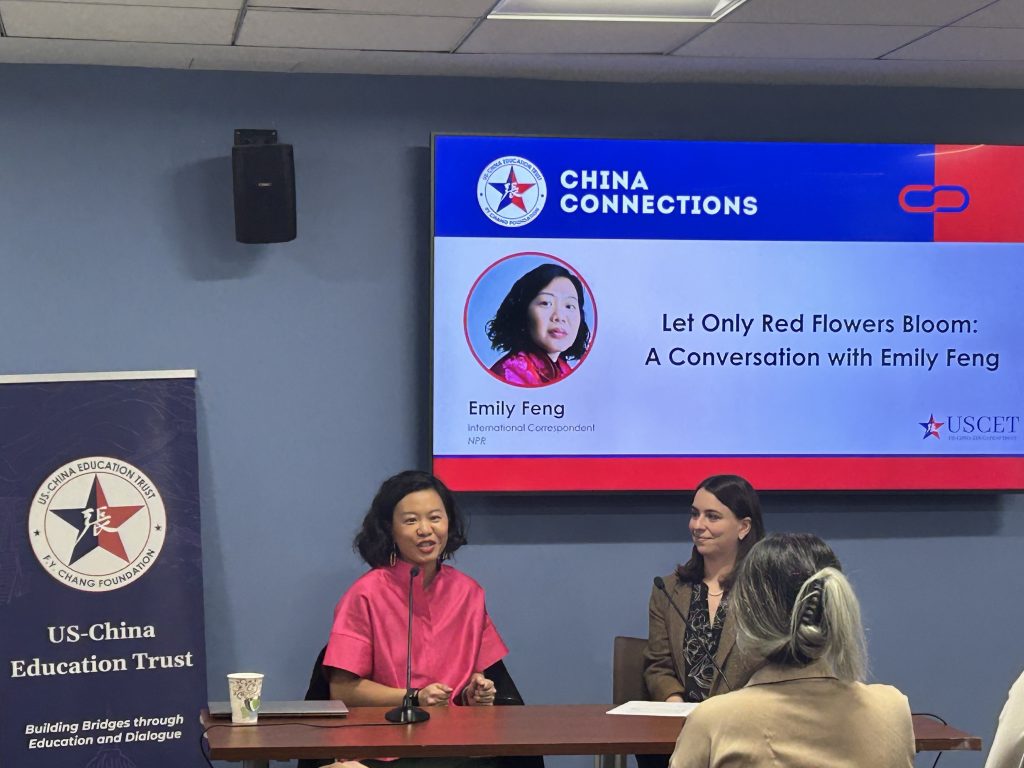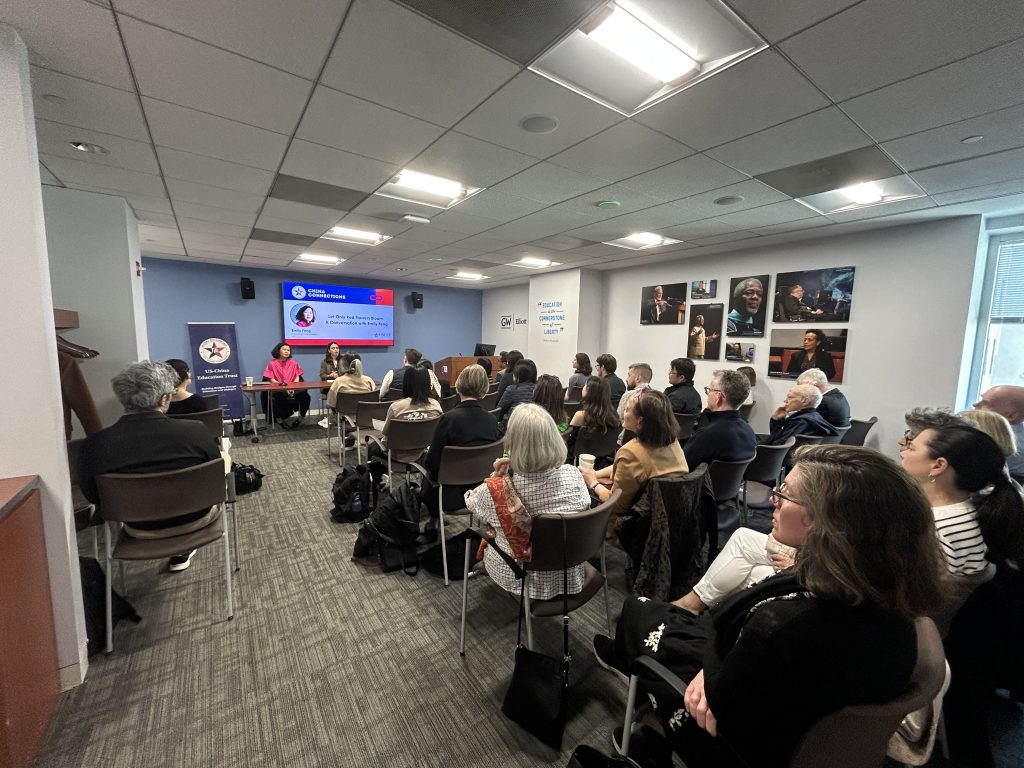On April 15, 2025, USCET proudly launched our new monthly China Connections series with “Let Only the Red Flowers Bloom: A Conversation with Emily Feng.” This event featured NPR international correspondent Emily Feng, widely recognized for bringing the complexities of modern China to global audiences through her reporting.

For the series’ launch, USCET featured Emily Feng’s newly released book, Let Only the Red Flowers Bloom, which illuminates China’s authoritarian turn through intimate portrayals of individual resistance. The event invited the audience to view contemporary China through a more human-centered, nuanced lens.
Ambassador Julia Chang Bloch, USCET’s Executive Chair, opened the event by reflecting on the importance of China Connections. She emphasized that in today’s era of strategic competition, it is more important than ever for Americans to understand China—not just to compete peacefully, but to coexist constructively.
Following Ambassador Bloch’s remarks, USCET Executive Director Rosie Levine led a wide-ranging conversation with Emily Feng. Emily shared her journey from studying Mandarin in college and developing an early fascination with China, to becoming a foreign correspondent in one of the world’s most culturally rich and politically complex countries.
“Identity is the central theme–China is not a monolith.”

Drawing from her reporting in Xinjiang, Beijing, and Hong Kong, Emily described the vast diversity that shapes Chinese identity—geographically, culturally, and ideologically. She challenged simplified portrayals of a unified national identity, emphasizing that Chinese identity is inherently multilayered and multifaceted. This stands in contrast to a vision of national unity centered on a singular Han-majority, Mandarin-speaking identity.
Emily also spoke about how these pressures have intensified in the post-COVID era, amid heightened online surveillance and social control. Yet, even under authoritarian conditions, she underscored the resilience of everyday people who continue to carve out space for self-expression, reminding the audience that Chinese society is dynamic and ever-evolving, shaped by individual stories that defy official narratives.
“The influence of China is a global story.”
Emily emphasized that Chinese identity today transcends national borders, shaped not only within China but also by diaspora communities worldwide. She explored how these communities continuously redefine what it means to be Chinese in diverse cultural and political contexts. For many, being Chinese becomes a dynamic and evolving process, with new dimensions that reflect far greater diversity than is often acknowledged. These individuals, navigating life across different environments, embody a wider and more nuanced spectrum of Chinese identity today.

After the moderated discussion, the audience posed questions about journalism in China, the role of Gen Z in the economy, and different aspects of Chinese identity. Emily responded by emphasizing that China is not static; the environment for journalists, social norms, and public discourse vary significantly by region and time. Even as the government promotes a singular vision of unity, the country’s diversity remains one of its greatest, and most enduring, strengths.
As the event came to a close, Emily encouraged American students to travel to China, learn the language, and seek firsthand experience—an aspiration that aligns closely with USCET’s mission.
This inaugural event marked a strong beginning for USCET’s China Connections series. By bridging the gap between American audiences and contemporary China through reporting across China, Emily offered a window into a complex and evolving society. This event was also covered in The GW Hatchet, which helped to extend the conversation beyond the room and engage a broader student audience.
USCET looks forward to continuing our series by bringing more thought leaders into conversation with our Washington, D.C. community, and fostering more profound understanding of China for the next generation.
Speaker Biography

Emily Feng is an award-winning correspondent for NPR covering China, Taiwan and the Asia Pacific, reporting on topics from semiconductors to social trends. She joined NPR in 2019 and contributes to NPR’s newsmagazines, newscasts, podcasts, and digital platforms. Previously, she was a foreign correspondent for the Financial Times, covering human rights and technology.
Feng’s reporting has taken her from coal mines to remote villages, earning numerous accolades, including the 2024 Hugo Shong Reporting Asia Award, the 2023 Daniel Schorr Journalism Prize, and the 2022 Shorenstein Journalism Award. She has also won multiple Human Rights Press and Gracie Awards. A Duke University graduate, she holds a dual B.A. in Asian and Middle Eastern studies and public policy.
About the Series: China Connections
Why should Americans be interested in China? China Connections is a new monthly series hosting discussions with experts to explore their work, gain insights into current events, and learn what a career in the China field looks like today. These events highlight individuals with unique expertise on China to provide students, young professionals, and members of the public a deeper understanding of current events and increase American student interest in pursuing a focus on China. These events are primarily held in person at George Washington University with online engagement.
